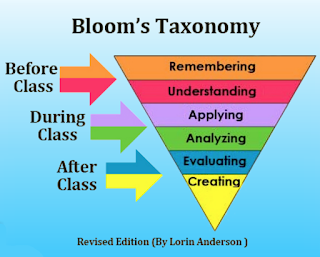The Center for Transformative Teaching and Learning (The CTTL)
The best AND worst thing about my job is that innovation in education has no boundaries. It crosses disciplines and school divisions. It happens in and out of school. It demands co-designers in teams that might include faculty, staff, parents, administrators and students.
Innovation can look like a curriculum redesign or a new technology. It can be a schedule redesign or rethinking classroom furniture. It may be an opportunity to design a new model of professional development or team building. Some days, it might simply mean creating efficiencies for learners in a community.
All this open-endedness and choice is fabulous.
AND all this open-endedness and choice is a problem.
If there are so many different ways to innovate, where do we start, and most importantly, why?
As I work daily to answer this question I have leaned heavily on the work of the Center for Transformative Teaching and Learning at St.Andrew's School. Their mission relies on connecting innovative teaching practice to mind, brain and education research. They distill their work in a user-friendly volume called Neuroteach. Next summer, I hope to attend their summer academy.
The work of the CTTL network resonates with me because it creates a framework from which to ask big questions of our current educational practice. The questions this work asks are not personal, speculative or subjective, they emerge from the neuroscience research. Asking these objective questions leads to compelling opportunities to rethink how (and what) we teach.
For example, research shows that frequent, ungraded, formative assessments enhance memory consolidation. This begs the question, why not provide more frequent formative assessment opportunities to learners? This leads to a discussion and exploration of pedagogy (unit structure, assessment practices, bell ringers, exit tickets, pre-tests) and tools (Socrative, SeeSaw, Explain Everything, Edpuzzle) all in service of a research informed teaching practice.
Some examples of the work of the CTTL include a formative assessment designed to "prime your brain" to "think about ways research...can inform, validate or transform how we design schools, classrooms and work with each individual student."
Try it out and explore ways you might innovate using Mind, Brain and Education research informed strategies: http://www.thecttl.org/a-formative-assessment/



Comments
Post a Comment